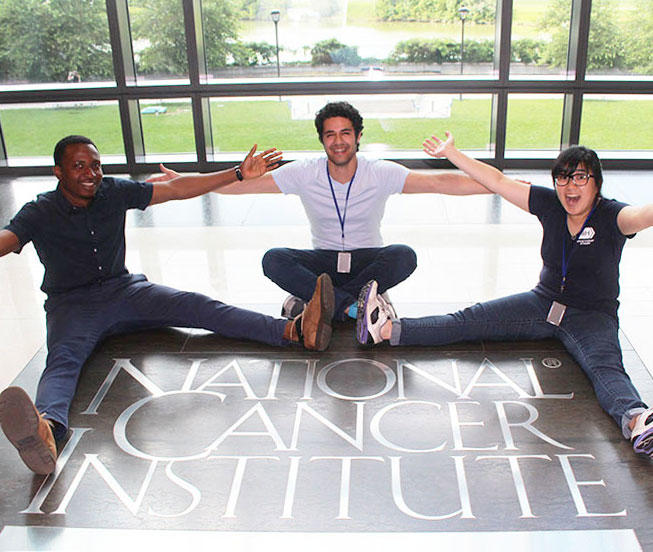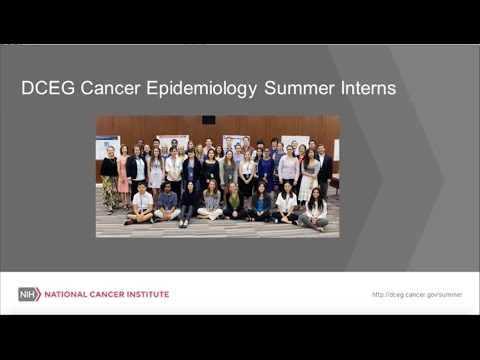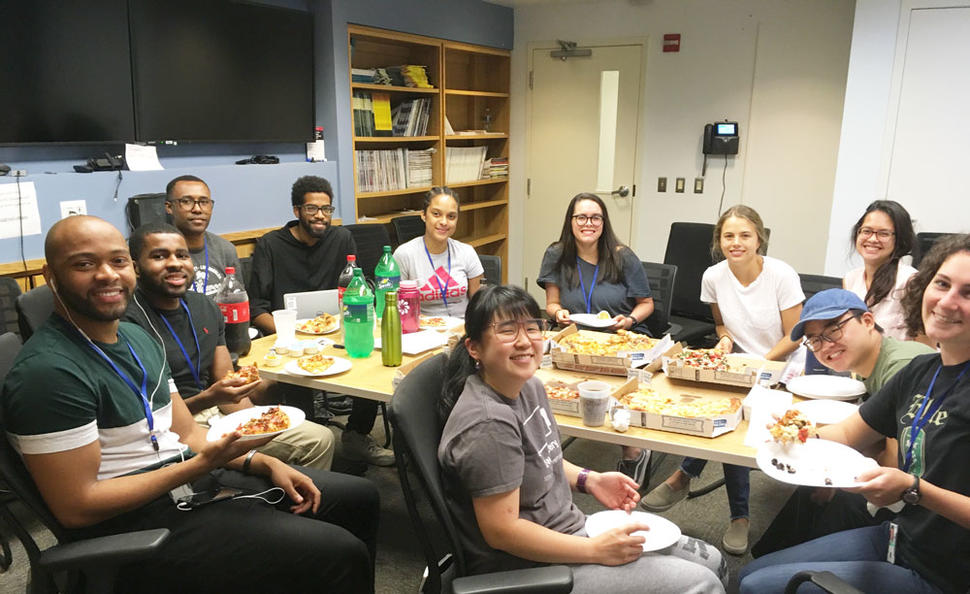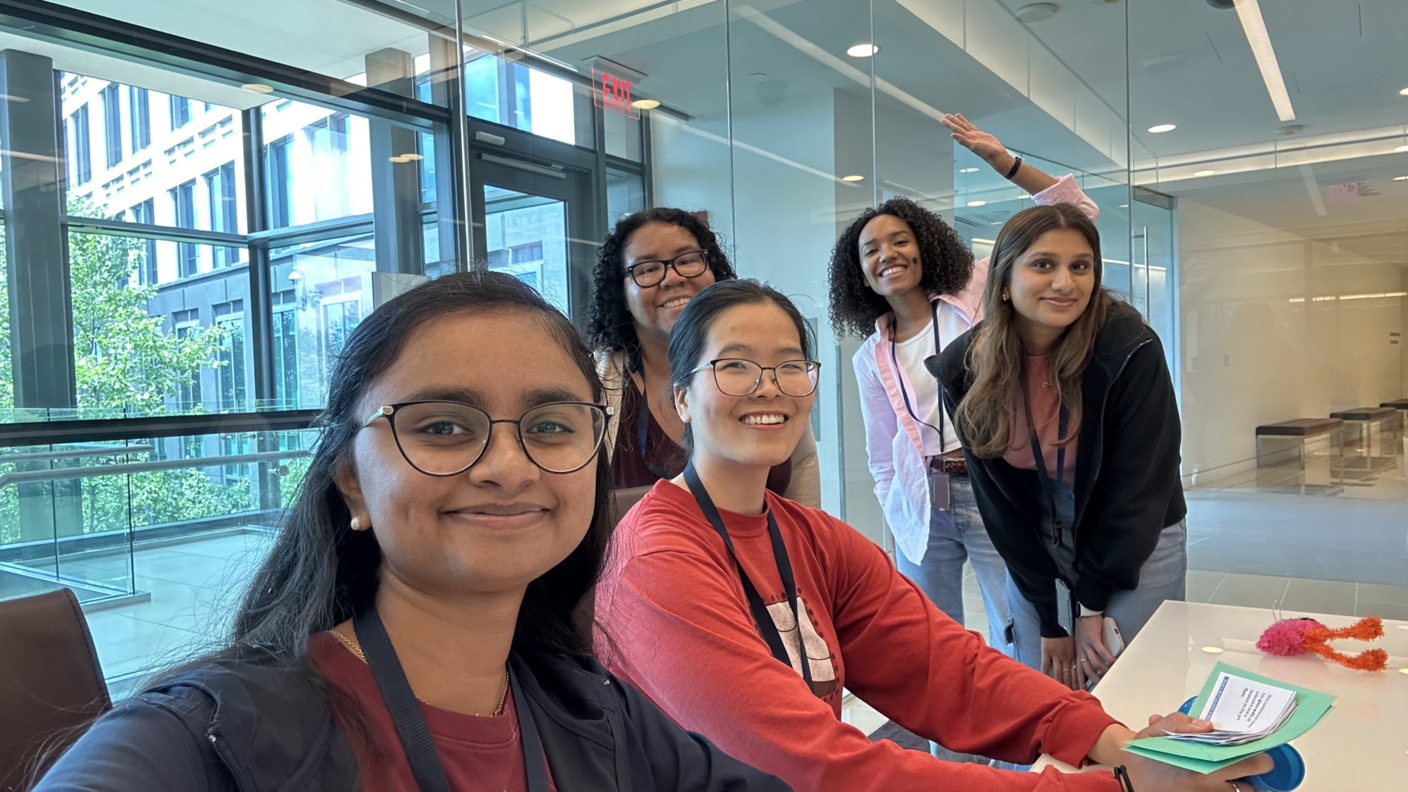Internship Benefits
In addition to learning about and performing research, interns join DCEG and NIH meetings and seminars, participate in career and wellness training, and present in the DCEG and NIH Summer Research Program Poster Days.
Summer interns receive a monthly stipend based on academic level.
Gain Experience in Epidemiology, Biostatistics, or Laboratory Research
DCEG researchers work on a variety of population studies and develop novel analytic techniques. Our investigators serve as invaluable mentors to interns on a wide range of research topics. Read more on our Principal Investigators page.
DCEG offers a limited number of summer laboratory research opportunities. Candidates can explore additional laboratory research opportunities on the NIH Research and Training website.
Explore DCEG Research Areas
Interns are offered the flexibility to study topics that cross research areas, requiring diverse sets of skills. The DCEG portfolio includes the below research areas, along with a range of cross-cutting scientific studies, including health disparities, sex differences, and others:
- Biostatistics: Descriptive studies to characterize cancer trends, analysis of large-scale data sets, statistical models for predicting cancer risk
- Clinical Genetics: Cancer predisposition syndromes, genetic modifiers of cancer risk, telomere biology disorders
- Integrative Tumor Epidemiology: Advance understanding of cancer etiology and progression, perform integrative analyses of environmental and germline risk factors with comprehensive data on histological and molecular profiling of tumors and their precursors
- Infections and Immunoepidemiology: Prospective cohorts at high risk of AIDS, oncogenic viruses, immunosuppression, and cancer
- Metabolic Epidemiology: Hormones, tobacco, and other exposures, energy balance /obesity, dietary intake, and micronutrients
- Occupational and Environmental Epidemiology: Pesticides and agricultural exposures, industrial chemicals, environmental exposures, exposure assessment
- Radiation Epidemiology: Medical radiation exposures, occupational radiation exposures, environmental radiation exposures, radiation dosimetry
- Translational Genomics: Relationship of germline genetic variation to cancer, detection, and mapping of cancer susceptibility alleles, bioinformatic analyses of genetic variants
What You Need to Know Before Applying
A typical summer internship lasts 8 to 10 weeks with a minimum requirement of 8 weeks. The internship begins in late May or early June and ends in August or September, but exact dates depend on the student's and the mentor's schedules.
In addition to the SIP, there are several special summer cohort programs offered through the NIH Training Office or through various institutes, including NCI. Interns supported through some of these programs can work in DCEG.
Questions about internships in DCEG may be directed to our Summer Internship Coordinator, Ms. Diane Wigfield.
Eligibility
To apply for the NIH SIP, and SIP cohort programs, you must be a U.S. citizen or permanent resident.*
Learn more about eligibility and apply through the NIH Office of Intramural Training and Education (OITE).
*U.S. permanent residents must be attending or have been accepted into educational institutions in the U.S.
Applicants with a family member working at NIH should be aware of the strict nepotism policy, which may limit their ability to work in certain NIH institutes, centers, or research groups.
Selection Process
After submitting your application, you should identify and contact investigators and/or postdoctoral fellows whose work interests you. Find a list of DCEG investigators and their research interests. Once you have identified someone of interest and learned enough about what they are working on, you can send a direct email to them describing why you want to work with them and how you would be a good addition to their group. For more advice, watch the NIH SIP video on applying to the summer program.
How to Apply
We will be accepting summer 2027 applications starting mid-November.
All information on how to apply is available at the OITE site.



